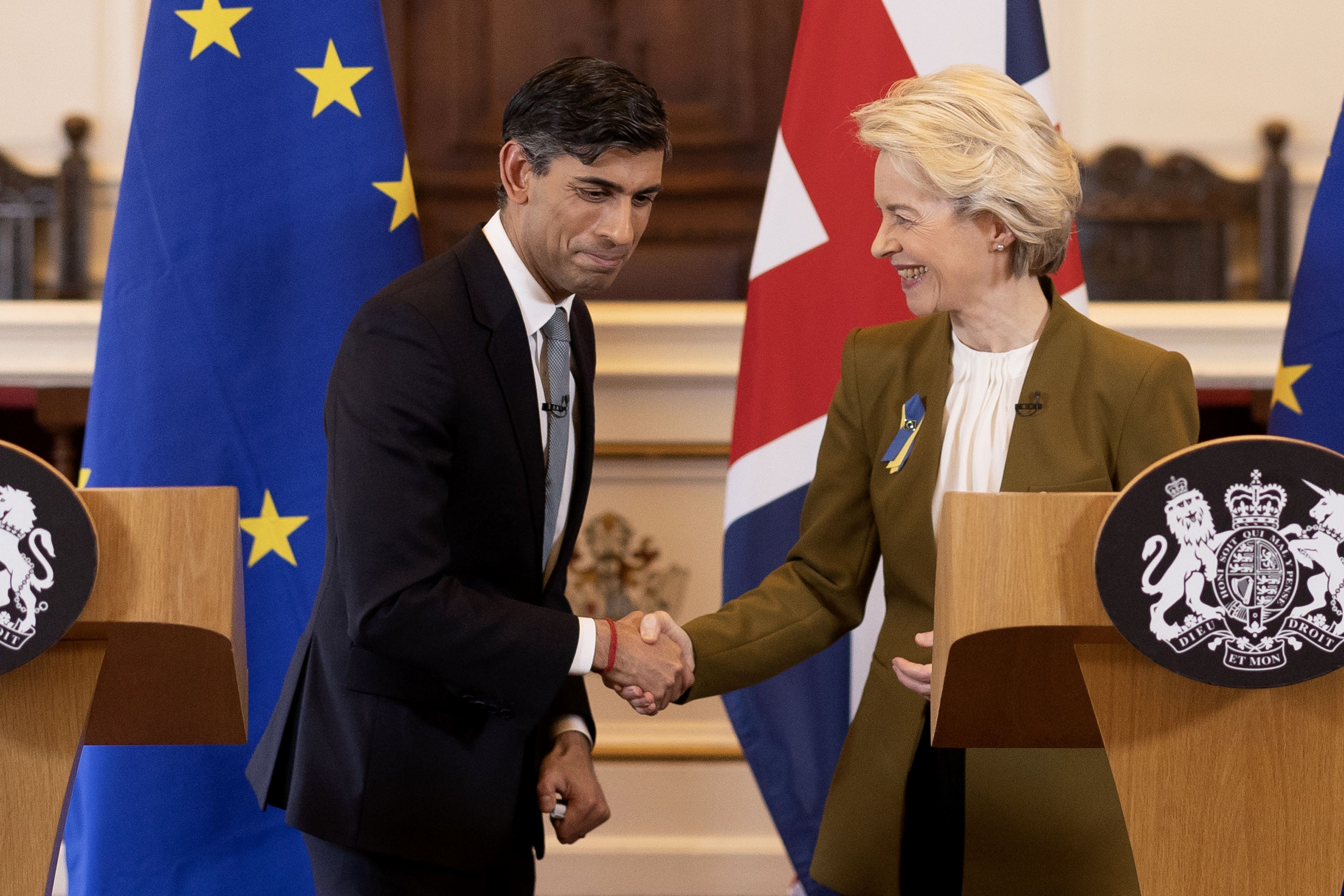The Horizon triumph shows Rishi Sunak is owed more credit than he has been granted
Editorial: For all his apparent lack of charisma, endless Tory infighting and crumbling concrete, the Horizon deal is a reminder that the PM is capable of quietly getting on with the job to benefit Britain – by negotiating a deal with the EU that is a major shot in the arm for scientific research

Sometimes, if he has a moment for reflection on his political predicament, Rishi Sunak might be reminded of the famous scene in the Monty Python film Life of Brian where the oppressed citizens of the imperator Julius Caesar ask: “What have the Romans ever done for us?” There then follows a long list of achievements, delivered to fine satirical effect.
With the prime minister’s popularity almost as low as Caesar’s might have been had YouGov been around in the ancient world, the prime minister can be forgiven a little for feeling that today’s voters are an ungrateful lot (though not maybe to the hubristic extent that the education secretary Gillian Keegan seems to feel is appropriate).
The announcement that the UK is rejoining the EU’s Horizon science programme – and is set to rejoin its Copernicus space programme – is the latest evidence of this slight lack of appreciation in the public mind. Mr Sunak has worked hard to clear up yet another mess of the Brexit legacy left by his two predecessors, and he deserves great credit for it, overshadowed though it is by the school buildings scandal.
Rather quietly, and in his technocratic way, Mr Sunak has shown himself to be a highly effective negotiator, at least on the international stage. It is, though, not the kind of achievement that immediately impresses people more concerned about the price of petrol.
In any case, Horizon is a “win-win” for British and European scientific and other researchers. There was never going to be a suitable “Global Britain” replacement for these partnerships, and no UK-funded budget for science and technology could ever replicate the well-established nexus of projects, contacts and collaboration built up over half a century with our closest neighbours: those are assets that money cannot buy (even if there was any).
Nor is Horizon the kind of wasteful Euro-racket of fevered Brexiteer caricature: Britain always did rather well out of it. In fact, the EU research bodies have actually attracted “recruits” – associate members – from across the world, including Ukraine, New Zealand and Israel. Investment in the science sector in the UK had stalled during the long period when Horizon became yet another battleground in the cold war Boris Johnson and Liz Truss waged on Brussels. Yet it was always intended that the UK would remain inside Horizon under the EU-UK Trade and Cooperation Agreement, ie the Brexit treaty, and that was what was negotiated by Mr Johnson and Lord Frost.
It was only when the Johnson and Truss administrations subsequently unilaterally renounced the Northern Ireland protocol that the EU threw the future of Horizon into doubt. Now, to the relief of scientists and academics, a further wrangle about money has been resolved, and the situation has at last been stabilised.
It has not come about by chance. It is the direct product of Mr Sunak’s previous exercises in constructive diplomacy, rebuilding bridges and the mutual trust so spitefully blown up by Mr Johnson and Ms Truss. Horizon logically follows from the completion of the Windsor Framework on Ireland in the summer and a highly successful Franco-British summit with Emmanuel Macron in the spring. There may be more to come.
For all his lack of charisma, the endless Tory infighting and crises such as the present one centred on crumbling concrete, the Horizon breakthrough is a reminder that Mr Sunak is notching up a few low-profile but valuable successes, however little thanks he is getting for it.
When the next election is at last called and the voters ask: “What did Rishi Sunak do for us?”, the roll call of his achievements, the Windsor Framework, Horizon, Copernicus – plus reversing Ms Truss’s car-crash economic policies – may seem to be rather more modest in comparison with those of Caesar. Indeed, Mr Sunak couldn’t credibly claim some of those attributed by the Python script to the Romans – “Apart from the sanitation, the medicine, education, wine, public order, irrigation, roads, a freshwater system, and public health, what have the Romans ever done for us?”
But still, credit where credit is due.


Join our commenting forum
Join thought-provoking conversations, follow other Independent readers and see their replies
Comments